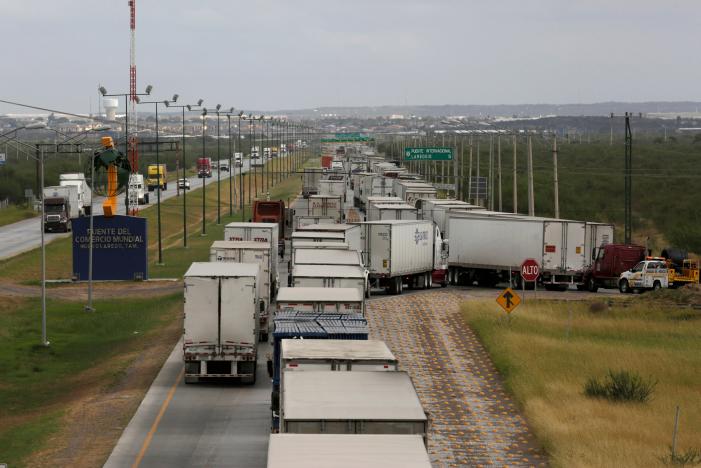CAFTA Welcomes Pledge by G20 Leaders And Trade Ministers to Keep Borders Open For Trade

Dan Darling, President of the Canadian Agri-Food Trade Alliance (CAFTA) today issued the following statement in response to the pledge by G20 leaders and trade ministers
“In these unprecedented and challenging times, it’s paramount to keep trade lines open and avoid any unnecessary disruption of supply chains, especially when it comes to ensuring the adequate production and distribution of critical agri-food products. That’s why we welcome the G20 commitment to ensure the flow of essential supplies, critical agricultural products, and other goods and services across borders, and work to resolve disruptions to the global supply chains, to support the health and wellbeing of all people.”
“On behalf of Canadian agri-food exporters, representing a substantial portion of the supply chain currently under immense pressure, it is absolutely critical that nations work together to ensure that cross-border trade remains stable and work is being done to assess and minimize the impact of the pandemic on trade and that a commitment to keep trade free, fair, non-discriminatory, transparent remains at the core of the G20 trade agenda.
“Agri-food exporters urge forceful coordination on free trade to entrench post-pandemic recovery”
“However, we must go even further. Specifically, we urge all G20, WTO members and the wider international community to provide assurances to keeping borders open to agri-food trade by refraining from imposing any new tariffs and non-tariff barriers or other trade restrictions for global agri-food supply chains. This is absolutely essential to prevent the collapse and maintain the stability of supply chains of sectors that need to remain robust and resilient for the workers they employ and for the consumers they feed.
“For countries that may be tempted to hoard and adopt food restrictions, supply shortfalls will be best addressed though unfettered flow of products and increased production. Taking away the possibility to sell abroad would remove the incentive for farmers, producers and food manufacturers to grow, make, and deliver safe food and feed products to where they are needed most. In these dire times, more trade is needed, not less.
“We also call on the G20 and WTO to speed up WTO reform. The rules-based international trading system with a functioning WTO at its core will be more important than ever to help us recover from this crisis. Ensuring enforceable trade rules are in place will benefit the entire agri-food sector and help us do what we do best: deliver world-class products that feed the world to every corner of the globe and maintain jobs and generate growth in rural and urban communities.
“Finally, it is of crucial importance that Canada and governments around the world recognize that free and open trade will be vital for globally coordinated post-pandemic economic recovery efforts. History has shown clearly that free and open trade is the best way to ensure a global recovery takes root. As the head of the WTO recently stated, it will be important that countries tap into each other’s growth which will help economies recover more quickly than if we try to act alone.
“We call on the Canadian government to embrace a leadership role in finding bold new ways forward for the WTO and working through other international fora in support of free and open trade as well as standing up for agri-food exporters and the workers and families that rely on this sector for their livelihood at the beginning of the chain, and the consumers at the end of the chain.”
CAFTA is the voice of Canadian agriculture and agri-food exporters, representing the 90% of farmers who depend on trade and the ranchers, producers, processors and agri-food exporters who want to grow the economy through better access to international markets. This includes the beef, pork, meat, grains, cereals, pulses, soybeans, canola as well as the sugar, malt, and processed food industries. The sectors CAFTA represents over 90 per cent of Canada’s agri-food exports and support about a million jobs in urban and rural communities across Canada.












